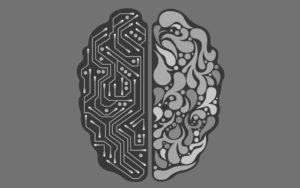How Can Systems Help Your Kid’s ADHD Brain?

Like Day and Night
Imagine someone shows you a card with a picture of the sun and asks you to say, “Night.” Then, she shows you a card with a picture of the moon and stars and asks you to say, “Day.” She flips rapidly through the cards, and you have to answer according to the rules of the game.
Adele Diamond, a pioneer in the study of executive functions, conducts this simple experiment with children and has found that when they take their time, pay attention, and think before they answer, they do well. When they rush and answer impulsively, they get the answers reversed. Welcome to the life of kids with ADHD. Their neurobiological makeup isn't wired for the rules of daily life and school, and they're often unclear on the rules of the game, or not given the time to figure out how to adapt to them.
Article continues below...
Want to Motivate Kids?
Download a free tipsheet "The Parent's Guide to Motivating Your Complex Kid" to help your child find the motivation to do... anything and everything!
Executive Functions: What Happens When There's a Deficit?
Diamond's experiment underscores how difficult it is to complete even simple tasks when someone is contending with executive function deficits. Executive functions, the cognitive skills and processes housed in the frontal lobe, help us organize and self-regulate. They are involved in everything from remembering details and managing time, to controlling responses and sustaining and shifting focus.
These functions are like a great executive assistant: they help keep you on track, remind you when you have appointments, tell you to stop and eat lunch, and point out that your glasses are on top of your head (when you're frantically searching for them).
When you have ADHD, your assistant takes two-hour lunches, shows up erratically, if at all, and is prone to napping on the job. In other words, neurological deficits make it incredibly difficult for a kid with ADHD to function as a typical child does. Some things that come automatically for other children – like stopping to consider an answer before saying “Night” or “Day” – present huge obstacles to the ADHD brain.
Dr. Thomas Brown, clinical psychologist and leading ADHD researcher at Yale University, identifies 6 specific areas of the challenges faced by kids (and adults) with ADHD:
- Activation: organizing, prioritizing, and activating to work.
- Focus: focus, sustaining, and shifting attention to tasks.
- Effort: regulating alertness, sustaining effort, and processing speed.
- Emotion: managing frustration and modulating emotions.
- Working memory: utilizing working memory and accessing recall.
- Action: monitoring and self-regulating action.
Kids with ADHD want to be good! Just like all kids, they want to have fun, make their parents proud, and feel a sense of accomplishment. Dr. Brown says that ADHD can seem like a problem of willpower or of desire. If the kid wants badly enough to be good, if they want to pay attention in school or if they want to make meaningful friendships, they can. But that's not the case. “These impairments of executive functions are usually due to inherited problems in the chemistry of the brain's management system.” In other words, they just can't help it.
Systems and Structures
Using systems and structures help make it easier for our kids to accommodate for the challenges of executive function deficits. We can set them up to be more successful in accomplishing tasks at home, school, and in life. Just a few examples:
- A simple checklist in the morning to help them remember what they need to do before they get out the door.
- “Brain breaks” every 20 minutes when doing homework to prevent boredom and distraction.
- “Warnings” at regular intervals before kids have to shift focus or go to bed. For example, “You have 10 minutes before bed. Time to wrap it up.” Then, the same for five minutes and one minute to ease the transition.
Systems and structures help compensate for deficits. It's like giving them – or teaching them to give themselves – an executive assistant to support themselves as they develop their personal management system.


